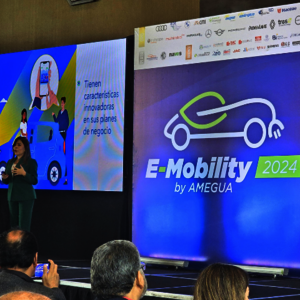CABEI holds workshop on environmental sustainability

Tegucigalpa August 22, 2014. – Today a workshop for the press called, “Environmental Sustainability: Energy and Food Security,” was held in Tegucigalpa and broadcast by videoconference to the entire Central American region. The event was organized by the Central American Network of Journalists for Development (REDCAPD, Spanish acronym) and sponsored by the Central American Bank for Economic Integration (CABEI).
The workshop was attended by 65 Central American journalists, who expanded their knowledge about climate change adaptation and mitigation, becoming fully aware of the impact climate change can have on agriculture and food production and, therefore, on food security.
The speakers discussed climate change and the need to adapt to it, leading to an analysis of what should be produced, production techniques, optimum conditions and the consequences of these decisions for the population. The presentations dealt with the consequences of the greenhouse effect on different sectors; tools for adaptation, such as management of climate risk and agricultural emergencies; the relationship between climate change and small family farming; climate change and soils; and disaster evaluation.
One of the speakers, Angel Murillo, a CABEI specialist in agribusiness, highlighted the fact that the activities of mankind are the main catalyst for the accelerated environmental degradation that is affecting the Central American region and the need to take action and make investments on the short term to mitigate the consequences of human actions that are threatening environmental sustainability.
Mr. Murillo cited one example of a success story: the case of La Chureca in Nicaragua, a former garbage dump that was converted into an integral development project for Barrio Acahualianca. Although this happened several years ago, it is a positive demonstration of how Nicaragua can change an adverse situation into a model for the development of our countries.
In another presentation, CABEI energy specialist Mr. Mario Cerna talked about the role of renewable energy projects in meeting Central American energy needs to reduce greenhouse gasses and to stimulate innovation, productivity and economic growth.
CABEI, the principal source of development financing in the region, promotes energy generating initiatives using hydro, wind, biomass, geothermal and solar sources, which contribute to reducing the greenhouse gasses that cause climate change.







